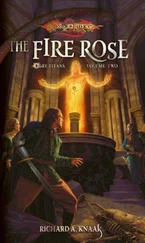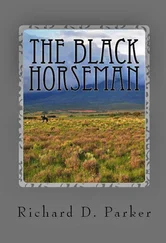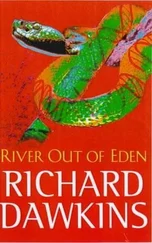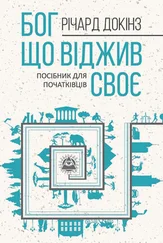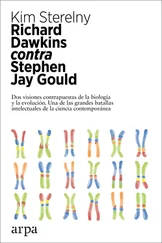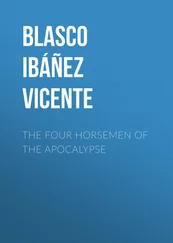Richard Dawkins - The Four Horsemen, episode 1
Здесь есть возможность читать онлайн «Richard Dawkins - The Four Horsemen, episode 1» весь текст электронной книги совершенно бесплатно (целиком полную версию без сокращений). В некоторых случаях можно слушать аудио, скачать через торрент в формате fb2 и присутствует краткое содержание. Жанр: Фантастика и фэнтези, на английском языке. Описание произведения, (предисловие) а так же отзывы посетителей доступны на портале библиотеки ЛибКат.
- Название:The Four Horsemen, episode 1
- Автор:
- Жанр:
- Год:неизвестен
- ISBN:нет данных
- Рейтинг книги:3 / 5. Голосов: 1
-
Избранное:Добавить в избранное
- Отзывы:
-
Ваша оценка:
- 60
- 1
- 2
- 3
- 4
- 5
The Four Horsemen, episode 1: краткое содержание, описание и аннотация
Предлагаем к чтению аннотацию, описание, краткое содержание или предисловие (зависит от того, что написал сам автор книги «The Four Horsemen, episode 1»). Если вы не нашли необходимую информацию о книге — напишите в комментариях, мы постараемся отыскать её.
The Four Horsemen, episode 1 — читать онлайн бесплатно полную книгу (весь текст) целиком
Ниже представлен текст книги, разбитый по страницам. Система сохранения места последней прочитанной страницы, позволяет с удобством читать онлайн бесплатно книгу «The Four Horsemen, episode 1», без необходимости каждый раз заново искать на чём Вы остановились. Поставьте закладку, и сможете в любой момент перейти на страницу, на которой закончили чтение.
Интервал:
Закладка:
[RD] I think you've made that point and we've accepted it, Sam. I mean, going back to the thing about whether we'd like to see churches empty, I think I would like to see churches empty. What I wouldn't like to see, however, is ignorance of the Bible.
[CH] No.
[RD] Because you cannot understand literature without knowing the Bible. You can't understand art, you can't understand music. There are all sorts of things you can't understand, for historical reasons. But those historical reasons you can't wipe out, they're there. And so even if you don't actually go to church and pray, you've got to understand what it meant to people to pray and why they did it, and what these verses in the Bible mean and what this …
[SH] But it only that? Just the retrospective and historical appreciation of our of our ancestors’ ignorance?
[RD] You can more than just appreciate it, you can lose yourself in it, just as you could lose yourself in a work of fiction without actually believing that the characters are real.
[DD] But you're sure you wanna see the churches empty? You can't imagine a variety of churches, maybe by their … like it's an extremely denatured church. A church which has ritual and loyalty, and common cause and purpose, and even …
[SH] and music.
[DD] music.
[RD] yes, yes, yes
[DD] And they sing the songs and they do the rituals, but where the irrationality has simply been long without.
[RD] oh, okay. So you go to those places for funerals and weddings
[RD] and you have beautiful poetry and music,
[DD] and also perhaps for …
[RD] group solidarity meetings.
[DD] group solidarity to create some project which is hard to get off the ground otherwise.
[CH] I think there's one more tiny thing, I mean, I haven't been tempted to go to church and that's a very, very small point but one reason that makes it very easy to keep me out it is the use of the New English Bible instead of …
[RD] Oh, how dull, yes.
[CH] the King James one, right. I mean, there's really no point, I can't see why anyone goes, and (inaudible) stay away. They've thrown away …
[DD] All the poetry, yeah …
[CH] A pearl richer than all their tribe.
[RD] Absolutely.
[DD] Right.
[CH] They don't even know what they've got. It's terrible. If I was a lapsed Catholic and I brooded about how I wanted my funeral to be arranged, which is not something I would, I'd want the Latin Mass. YES!
[DD] Absolutely.
[CH] For sure.
[RD] I mean there's another issue there, which of course is that is when it becomes intelligible the nonsense becomes more transparent, and so if it's in Latin, it can survive much better. It's rather like a camouflaged insect. It can get through the get through the barriers, because you can't see it. And whereas when it's translated into not just English but modern English, you can see it for what it is.
[DD] But now, seriously then, do you, therefore delight in the fact that churches are modernising their texts and using the …
[RD] No, no I don't.
[DD] Or do you …
[RD] It's an aesthetic point. No, I don't.
[CH] That's the worst of both worlds.
[DD] (inaudible) it seems to me …
[RD] Yes.
[CH] And we should be grateful for it. We didn't do this to them.
[DD] Yeah, that's right, we didn't impose this on them …
[CH] Any more than we …
[SH] We weren't clever enough …
[CH] We don't blow up Shi'a mosques either. We don't blow up the Birmingham Buddhas, we don't desecrate. For the reasons given, myself at least (inaudible), we would have a natural resistance to profanity and desecration. We'd leave it to the pious to destroy churches and burn synagogues or blow up each other's mosques, and I think that's a point that we might spend more time making because I do think it is feared of us, and this was my point to begin with, that we wish for a world that's somehow empty of this echo of music and poetry and the numinous and so forth. That we would be happy in a Brave New World. And since I don't think it's true of any of us …
[RD] No, no it's not.
[CH] it's a point one might spend a bit more time making, that indeed, the howling wilderness of nothingness is much more likely to result from holy war, or religious conflict or theocracy than it is from a proper secularism, which would therefore, I think, have to not just allow or leave or tolerate or condescend to or patronise, but would actually in a sense welcome the persistence of something like faith. I feel I've put it better now than I did at the beginning.
[SH] but not as unintelligently there, I think. What do you mean 'something like faith'?
[DD] Yeah, and how like faith?
[CH] Something like the belief that there must be more than we can know.
[DD] Well, that's fine.
[RD] Well that we could share.
[SH] Dan Dennett believes that, that's not faith.
[DD] Yeah, sure.
[SH] I mean, we know there's more than we presently know …
[CH] Well, that was my original point in saying, or are likely to know. If we could find a way of enforcing the distinction between the numinous and the superstitious, we would be doing something culturally quite important.
[RD] Yes.
[CH] When I talk about this stuff … well, Richard and I did this at Central Hall with Scruton and that rather very weird team that we debated, who kept on saying, Scruton particularly, well what about the good old Gothic spires and so forth? I said look, I wrote a book about the Parthenon, I'm intensely interested in it. I think everyone should go, everyone should study it and so forth, but everyone should abstain from the cult of Pallas Athena. Everyone should realise that probably what that sculptural frieze that's so beautiful describes, may involve some human sacrifices. Athenian imperialism wasn't all that pretty, even under Pericles and so on. The great cultural project, in other words, may very well be to rescue what we have of the art and aesthetic of religion while discarding the supernatural.
[DD] And I think acknowledging the evil that was part of its creation in the first place. That is, we can't condone the beliefs and practices of those Aztecs but we can stand in awe of and want to preserve their architecture and many other features of their culture. But not their practices and not their beliefs.
[RD] I once did a British radio programme called Desert Island Discs, where you have to go on and choose your six records which you take to a desert island, and talk about it. And one of the ones I chose was Bach Mache dich, mein Herze, rein. It's wonderful sacred music and the woman questioning me couldn't understand why I would wish to have this piece of music.
[SH] Pious.
[RD] It's beautiful music and its beauty is indeed enhanced by knowing what it means. But you still don't actually have to believe it. It like reading fiction. You can lose yourself in fiction, and be totally moved to tears by it, but nobody would ever say you've got to believe that, this person existed and that the sadness that you feel really reflected something that actually happened.
[CH] Yes, like the Bishop of Dublin preached a sermon against Swift and said that he'd read every book of Gulliver's Travels, and for his part he didn't believe a word of them!
(laughter). So that's the locus classicus, I think, of all that. Well, clearly we're not cultural vandals but maybe we should think of the way in which so many people suspect that that's what we are. If I would accept one criticism that these people make, or one suspicion that I suspect they harbour, or fear that they may have, I think that might be the one. That it would be all chromium and steel and …
[RD] Yes, and very much so.
[DD] and no Christmas carols and no menorahs, and no …
Читать дальшеИнтервал:
Закладка:
Похожие книги на «The Four Horsemen, episode 1»
Представляем Вашему вниманию похожие книги на «The Four Horsemen, episode 1» списком для выбора. Мы отобрали схожую по названию и смыслу литературу в надежде предоставить читателям больше вариантов отыскать новые, интересные, ещё непрочитанные произведения.
Обсуждение, отзывы о книге «The Four Horsemen, episode 1» и просто собственные мнения читателей. Оставьте ваши комментарии, напишите, что Вы думаете о произведении, его смысле или главных героях. Укажите что конкретно понравилось, а что нет, и почему Вы так считаете.


